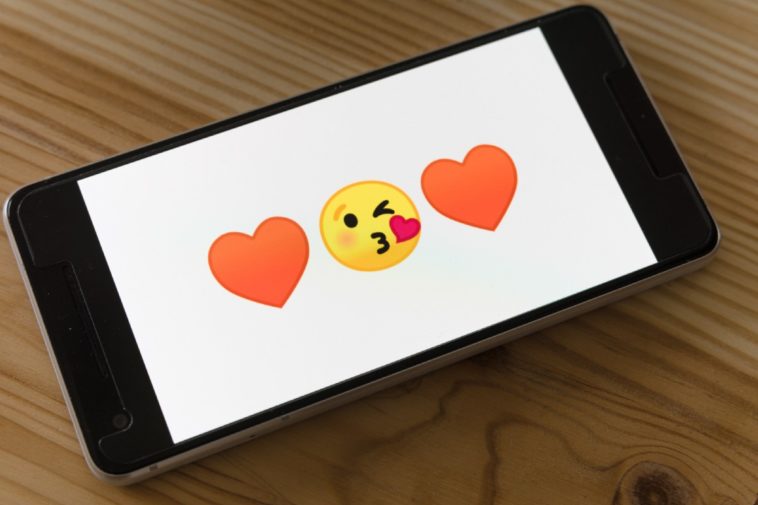h2>Dating : 6 Reasons You Should Quit Online Dating Forever
The complaint that I hear most frequently from people ready to rage quit online dating apps is that people are disrespectful. They ghost you. They abruptly start and stop conversations with no warning. They expect to be able to pick up the conversation two weeks after they stopped responding just because their Friday night plans happened to fall through.
Yet I would argue that they’re not trying to be disrespectful; this is simply the logical outcome when we’re constantly swiping through what has essentially become a catalog of human beings for consumption.
Everyone is easy come easy go.
If it takes one swipe to start a conversation with someone, you know there are plenty more conversations right around the corner with minimal to no effort on your part. Suddenly each human being becomes nothing but an online shadow, a shadow that’s practically meaningless to you — and you start being treated the same way. It’s degrading, discouraging, and just downright unpleasant.
I don’t think I need to tell you how harmful smartphone apps are to human beings. Human beings have evolved to be able to achieve great things, but we weren’t evolved to deal with the bombardment of fleeting stimuli we receive on a daily basis. Our attention spans and memories are suffering for it. Our happiness is suffering for it. And yet we just can’t stop, can we? You’re probably reading this on a smartphone right now after having checked your emails, Facebook, and YouTube.
And make no mistake, dating apps use the same bombardment of stimuli with the dangled carrot of the promise of a blissful relationship to keep you hooked.
“Swipe right” and “swipe left” have become colloquial regularities in our lexicon, but have you ever stopped to ask yourself how and why “swiping” even became a thing? Dating apps figured out that making it a game would get you hooked, feeding you bits of dopamine that keep you fiending every time you get a match.
Maybe it’s just me, but I don’t want to find my life partner on a platform that’s intentionally seeking to manipulate me into coming back in the face of hurt and disappointment. I get it though, how else are they going to create value for their shareholders?
Psychologist Barry Schwartz tells us that “When you give people too many options they get paralyzed instead of liberated.” He calls this idea the “paradox of choice.”
Behemoth grocery chain Trader Joe’s has been able to capitalize on this aspect of human nature, maintaining burgeoning sales and growing popularity while offering substantially fewer choices than their more traditional competitors.
“He tallied up 144 pasta sauces, 44 olive oils and 172 cereals. Meanwhile, the nearby Trader Joe’s stocked just 14 pasta sauces, 14 olive oils and 39 cereals.”
And believe it or not, we’re paralyzed by the same paradox of choice on dating apps like we are in the breakfast aisle trying to decide which cereal we can reasonably commit to for the next two weeks.
This is what leads people to surreptitiously browse Tinder when their newly minted partner falls asleep in bed next to them. It’s what leads that guy or gal to string you along for weeks on end, endlessly pushing back the “what-are-we” talk to make sure they’ve exhausted all their options before they feel comfortable committing (settling) for you.
When there are so many options waiting for you on your phone, how can anyone ever be confident in the choice they’ve made?
It’s common advice that no matter how long you’ve sustained a “text-ationship” with someone on an app, you’ll never know how you truly get along until you meet them in person.
But for how much we value our gut instinct and our “feels” during in-person encounters, we’ve somehow become okay with using photographs as our “make it or break it” factor when we decide who we’ll even meet in person. And this isn’t just conjecture; photographs are proven to be the most important part of anyone’s dating profile so much so that new industries are being borne out of the demand for dating profile photos that make the right first impression.
We do live in a very image-oriented society. If we don’t post something on “the Gram” it didn’t even happen, right? But we all know that photographs can’t contain and accurately represent the complexities of human beings, let alone the complexities that go into determining compatiblity.
The crooked smiles and noses with character fall flat in photos when they might otherwise add charm to an absolutely lovely being in person. And we’ll never find that out swiping.
The American Psychological Association tells us that people who use Tinder “reported having lower levels of satisfaction with their faces and bodies and having lower levels of self-worth than the men and women who did not use Tinder.”
Though online dating is extremely impersonal, we can’t seem to help but take everything that happens on it very personally. Each ghosting and fizzled conversation feels like a rejection and a personal failure. We keep asking ourselves how it is we’ve been on these apps for years and yet can’t seem to find a relationship that will last. It’s death by a thousand cuts.
Low levels of self-worth lead people to cope in unhealthy ways. They choose to withdraw rather than seeking support. They turn to drugs and alcohol to cope. They hook up with someone they probably shouldn’t have hooked up with so they can do something that doesn’t resemble wallowing in their self doubt at home.
It’s a lost art and a lost skill but one that will always be invaluable. And to be completely honest, it’s a muscle that a lot of people could stand to exercise.




